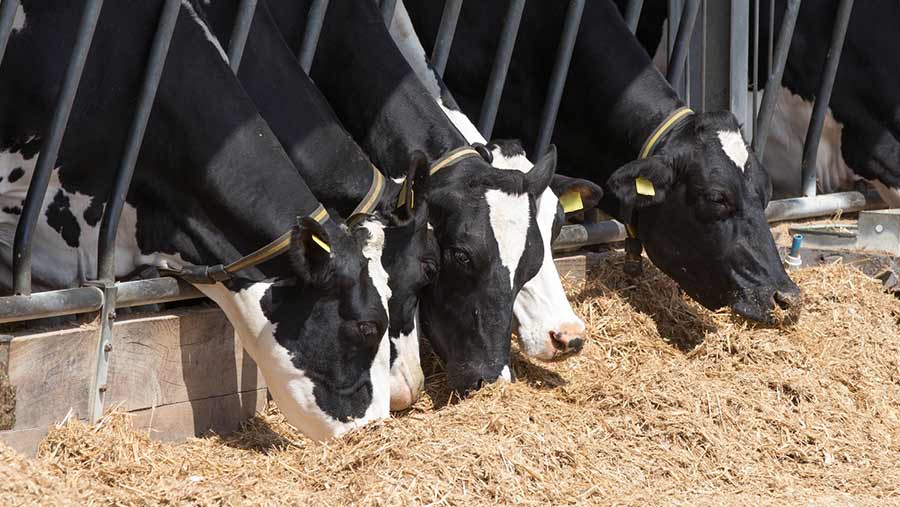Genetic tool can help lower transition disease, study shows
 © Tim Scrivener
© Tim Scrivener Studies show farmers using a revolutionary genetic tool to select sires whose daughters are genetically predisposed to better transition health have lower mastitis, ketosis and metritis rates.
Genus ABS launched TransitionRight six months ago. The tool scores sires using an economic ranking that goes from one to five stars, with one being the lowest score.
The company analysed the incidence of three critical transition diseases, mastitis, metritis and ketosis within two herds of 250 cows, to assess the effectiveness of the tool.
See also: Dairy farm reaps benefits from milk analysis technology
Results revealed there was a significant reduction in the incidence of transition diseases in cows bred from bulls rated four or five stars, compared with daughters of one or two-star sires (see table 1).
Table 1
|
Star ranking |
Mastitis incidence |
Metritis incidence |
Ketosis incidence |
|
4-5 |
2.8% |
28.4% |
1.3% |
|
3 |
3.9% |
38.9% |
1.9% |
|
1-2 |
10.5% |
50.2% |
2.1% |
- Metritis incidence almost halved from 50.2% in daughters bred from one and two-star sires to 28.4% in four to five-star sired daughters.
- Mastitis rates on average were 7.7% lower among daughters bred from the highest-ranking sires.
- Ketosis levels dropped from 2.1% to 1.3% in daughters bred from four and five-star daughters.
Dr Huw Lloyd, Genus ABS technical services director, said dairy farmers could make significant savings by using the tool.

Huw Lloyd
“We know transition disease takes a heavy toll on dairy farmers, particularly economically and at an estimated cost of £199 per case of mastitis, the results of the study should be given careful consideration.
“Again, at an estimated cost of £224 per case, the economic impact of metritis is significant. Furthermore, metritis can have a significant impact on subsequent reproductive efficiency and early lactation cull rates.
“Fundamentally, dairy farmers will experience significant economic benefits from having a greater number of four and five-star sired daughters in their herd.”
